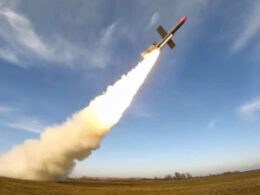Russian occupying authorities in Crimea have initiated 1,126 cases under Article 20.3.3 of the Russian Federation Code of Administrative Offenses for alleged “discrediting of the Russian Armed Forces,” the Office of Ukrainian president in Crimea reports.
These cases are part of the systematic repression against dissent and pro-Ukrainian sentiment in the occupied Ukrainian territory. Out of these cases, 993 have resulted in fines or combined charges, while 42 are still under consideration. This campaign highlights the occupation authorities’ efforts to suppress any resistance.
Besides, currently, 218 individuals are illegally detained in Crimea, including 132 Crimean Tatars. Among them, 43 are under arrest, 151 are imprisoned, and 26 are held without legal status. A notable case is Rustem Seitmemetov
, sentenced to 13 years in a maximum-security colony. His health has deteriorated severely due to inadequate medical care in custody, requiring hospitalization and medication unavailable in prison. He suffers from heart conditions and has been classified with a third-degree disability.
The occupation courts continue to issue harsh sentences. Recently, three residents of Sevastopol were convicted on fabricated charges of weapons possession and accused of supporting "Ukrainian nationalist ideology." Two were sentenced to 12 and 8.2 years in maximum-security colonies, while the third received a six-year suspended sentence and a fine.
Instances of peaceful protest are met with severe crackdowns. In Yevpatoria, a man was detained for listening to Ukrainian music in public, and in Simferopol, another was arrested for shouting “Glory to Ukraine” in a bar. These cases demonstrate the occupation authorities’ intolerance toward any expression of Ukrainian identity.
Despite the repressions, resistance continues. Activists from movements like “Yellow Ribbon” and “Crimean Battle Seagulls” defy the occupation by distributing Ukrainian symbols, documenting military activities, and exposing collaborators. Meanwhile, environmental and humanitarian challenges mount. The Kerch Strait oil spill from two Russian tankers in December caused severe ecological damage, with oil spreading across two kilometers of coastline and the deaths of 32 dolphins reported.





